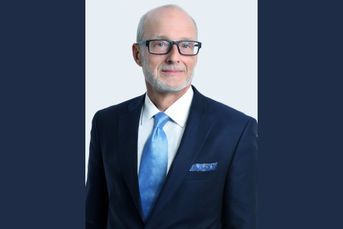Why financial advisors can’t live with or without Florida

A new study ranks the Sunshine State as the second-most popular state for Americans thinking about relocating. But it also tops the list of states residents are seeking to leave.
Try as you might, you can’t spell “financial advisor” without F-L-O-R-I-D-A.
A new study ranks Florida as the second-most popular state among Americans thinking about relocating based on internet search volume. With 18,530 Google queries, Florida trailed only Texas’ 21,021 searches, reflecting its popularity as a desirable relocation destination, according to a study by SelfStorage.com, an online platform for individuals and businesses looking for self-storage solutions.
And considering Florida’s sunny weather, gorgeous beaches, and retirement-friendly communities — and even friendlier tax policies — it’s no wonder the Sunshine State ranks so high on the list of destinations where Americans want to relocate.
All that said, Florida also pops up on the survey as the state that has the most residents who want to leave. The study shows Florida in the lead when it comes to residents searching about fleeing the state, with a search volume of 152 per 100,000 population. Next in line was Utah with a search volume of 144, suggesting a significant interest in relocation among Utah residents.
Talk about love it or leave it.
Jon Foster, president and CEO at Angeles Wealth Management, has offices in Santa Monica, California, New York City, Chicago and Houston, and clients all over the country. He said he has been seeing a significant migration of ultra-high-net-worth individuals in California moving to Texas, and New Yorkers relocating to Florida.
“This was mostly driven by high-tax-bracket escapees, but there were a significant percentage that also moved for political reasons,” Foster said. “Most of this has now slowed down. I think those who were motivated to move have moved, other than the regular historical retirement moves to Florida.”
Foster says his advisor teams now regularly travel to Florida and Texas to visit clients. In his view, Zoom meetings are not “real” meetings.
“If clients are entrusting us with their life savings, they deserve face-to-face attention, even if that means we need to travel,” he said. “We now have a physical office in Houston and excellent local advisory coverage there.
“What clients ask of us before relocating runs the gamut from simple to unbelievably complex,” Foster said. “The simple ‘ask’ is making sure that we are willing to travel to visit instead of only a Zoom relationship. The more complex ‘ask’ would be clients who have asked us to help them redomicile their entire financial and personal footprint from one state to another.“
But Nina Lloyd, president of Opus Financial Advisors, part of Osaic, says her clients are absolutely fine with using technology to get their questions answered.
“When a client relocates, I always encourage them to make the decision that is best for their family. If they are comfortable meeting regularly via Zoom, we retain the relationship,” Lloyd said. “In the event they have strong preference to meet in person, we used our extensive network to help clients find a new local advisor and work to ensure a smooth transition.”
Richard Austin, executive director at Integrated Partners, says another aspect of relocation financial advisors need to take into consideration is the Estate Tax.
“Only a few states impose an estate tax, but in states like New York and Massachusetts this tax could be up to 16% in addition to the federal estate tax. Also, the estate tax exemption is due to sunset at the end of 2025. What this means is that the estate exemption for clients will be reduced in half. For clients subject to both federal and state estate tax this could easily add up to millions of dollars in tax due upon their death,” said Austin.
As for the so-called financial capital of the world, New York ranks fifth in terms of the number of residents considering relocation, or at least those searching about it, with a query volume of 124 per 100,000 population. The data suggest that a considerable number of residents are searching for information about moving out of the state. On the flip side, the Empire State came in 10th as a state where Americans want to move to.
New Yorkers face the highest tax burdens in the country, at 12.47% of income, according to WalletHub. So one can easily understand their plight. And their flight.
“The 800-pound gorilla is that Florida and Texas don’t have a state income tax. This is the primary driver,” Foster said. “Every day I wake up thinking about tax and go to sleep thinking about tax.”
“Not owing state tax changes how you construct public and private equity and fixed-income portfolios. Muni bonds are less attractive,” he said. “Long-term capital gains become more attractive in Texas and Florida because New York, California, New Jersey, Pennsylvania, Connecticut charge full ordinary income rates on all capital gains income, regardless of the holding period. Texas and Florida charge zero, as do seven other states.”
Why alternative assets belong in retirement accounts
Learn more about reprints and licensing for this article.








